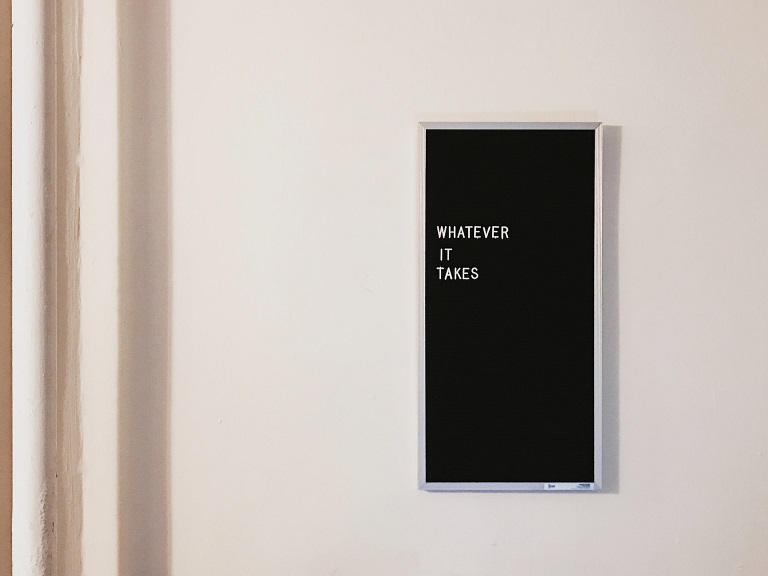What Is Residential Drug Rehab?
Inpatient treatment, likewise referred to as residential treatment, provides the highest level of rehab services for patients identified with alcohol or other drug addiction. Generally, inpatient drug rehab programs consist of medical detox and incorporated mental health services. With your approval, rehab personnel may likewise talk with your relative and seek advice from specialists you might already be dealing with to resolve your requirements and difficulties. Because addiction is a disease that impacts your body, mind and spirit, a multidisciplinary group is combined to offer you with a holistic healing plan. Your certified staff member for residential treatment may include:
- Physicians
- Nurses
- Psychiatrists
- Psychologists
- Accredited marital relationship and family therapists
- Accredited addiction counselors
- Nutritional experts
- Health and fitness experts
- Continuing care planners
- Monetary advocates
- Medical case managers
All set to take the next step?
Call (866) 503-4950 today and our group of recovery experts will determine the most efficient drug abuse treatment programs and services to help you reclaim your life from addiction.

The Advantages of Residential Drug Rehab
Residential rehab, and many kinds of inpatient rehab, provide particular advantages that other types of treatments may not always use. Some of these advantages include:
- The ability to detox in a safe and secure environment offering 24/7 care and support.
- The capability to overcome drug abuse problems, codependency, co-occurring disorders, and trauma in a safe and secure environment.
- Different treatments.
- A tight-knit neighborhood with whom to process all phases of substance abuse recovery.
In spite of the large quantity of advantages that residential rehab deals, all types of substance abuse treatment prove helpful for those wanting to recover from substance abuse concerns. To find out more about different inpatient and residential treatment programs near you in Kensington, Connecticut, call: (866) 503-4950
Inpatient Vs. Outpatient Rehab in Kensington Connecticut
Inpatient And Outpatient Addiction Treatment
Drug and alcohol treatment programs usually fall into 1 of 2 categories– inpatient or outpatient rehab. While similarly focused on rehab, each type has special characteristics and advantages to offer. Inpatient rehabs are intensive, residential treatment programs designed to treat severe addictions. Outpatient rehabs are part-time programs, allowing the recuperating user to keep going to work or school during the day. It is very important that both the individual with a substance use disorder (SUD) and their loved ones comprehend the distinctions before picking an inpatient or outpatient treatment program. Checking out all choices prior to deciding can put you or a loved one on the road to recovery long-term sobriety.Inpatient Rehab And Treatment
Inpatient recovery programs, likewise known as residential treatment, require patients to examine themselves into a regulated environment to overcome their addictions. Patients stay at a clinic with 24-hour medical and emotional support.Preparing For Inpatient Rehab in Kensington
It is necessary to effectively prepare for rehab. There’s no set amount of time required to prepare for treatment. It is essential to set an entry date for rehab and to have affairs settled prior to that date. A few of the important things to take care of before entering rehab consist of:- Speaking with your employer
- Finding living plans for kids or other family members
- Planning how to get to and from the recovery center
- Finding out what individual items are permitted
Family Assistance And Contact In Inpatient Rehab
Effective inpatient centers understand family involvement is essential to recovery. Relative can get in touch with loved ones in residential treatment to provide emotional support and support. When it comes to how and how often homeowners can interact with their loved ones, each inpatient center’s policy is different. Some rehab centers also supply counseling for the family of the individual in treatment.Daily Life Throughout Inpatient Rehab in Kensington, CT
During inpatient treatment, homeowners have the ability to completely concentrate on recovering and sober without the interruptions of daily life. A typical day in residential treatment is thoroughly scheduled and accounted for. Psychologists, counselors, and psychiatrists meet clients individually and in group settings to guide inpatient recovery. A typical residential program runs anywhere from 28 days to 6 months. The primary step in inpatient treatment is medically assisted detox. Physicians and addiction specialists monitor patients’ essential signs while the drugs leave the system. Drug cravings prevail during detox and can be challenging to conquer, often causing relapse. Consistent healthcare offered during inpatient treatment assists defend against relapse. Clinicians can offer required medication and medical proficiency to decrease yearnings and withdrawals. The brain responds in a different way to different addictive substances with time and a course of frequent use. Withdrawal symptoms aren’t pleasant for any drug, however some drugs need to never be stopped without medical supervision. Some withdrawals can be fatal. Lethal withdrawals are linked to drugs like synthetic Opiates, Benzodiazepines, alcohol, and Heroin. During inpatient rehab, clients have access to 24-hour medical attention. This attention can mean the distinction between relapse and recovery.Outpatient Rehab And Drug Abuse Treatment
Outpatient drug rehab is less restrictive than inpatient programs. Outpatient recovery programs normally require 10 to 12 hours a week spent checking out a regional treatment center. These sessions focus on substance abuse education, private and group counseling, and teaching addicted individuals how to cope without their drug. Outpatient drug rehab can be a great standalone option for someone with a mild addiction, or it can be part of a long-term treatment program. Outpatient drug rehab can last 3 to 6 months– something comparable to inpatient treatment– or over a year.Outpatient Detox Programs in Kensington
Patients with mild-to-moderate drug withdrawal symptoms might find outpatient detoxing a fitting option to residential detox. Outpatient detox is safe, efficient, and takes less time to finish than inpatient detox; the average outpatient detox is 6.5 days. Clients need to go to a health center or other treatment facility for physical and mental check-ups throughout outpatient detox. Clinicians or medical professionals may administer medications on-site to relieve withdrawal symptoms like stress and anxiety, anxiety, and increased heart rate.How Does Detox Work?
Detox is the primary step in assisting your brain and body heal from substance abuse. The detox process begins with evaluations by medical doctors and nurses to figure out which, if any, medical interventions are needed. Detox is mainly a time to flush the chemicals from your body, which can be an uneasy experience without the best medical care to assist alleviate pain and/or drug yearnings. Medical personnel will deal with you to evaluate your level of discomfort and provide you with medications, if needed, to resolve any discomfort or cravings. Throughout the detox process, you will be medically kept an eye on 24/7 till medical personnel identify you are stable enough to take part in rehab programming and activities.Social Support in Kensington Throughout Outpatient Rehab
Outpatient drug rehab enables those in recovery to stay at home throughout treatment. Those undergoing outpatient drug rehab can continue working and stay close to family and friends. Outpatient treatment centers generally conduct meetings in the evening or in the early morning, assisting those in the program maintain their typical schedules. Twelve-step groups like Twelve step programs (AA) and Narcotics Anonymous (NA) may be used as part of outpatient treatment. Research studies show that participating in recovery groups like AA and NA assists recuperating addicts remain sober. Many people with a substance use disorder (SUD) likewise turn to outpatient treatment after finishing an inpatient program as part of their continued recovery.Inpatient treatment programs usually cost more than outpatient drug rehab. The on-hand medical care and psychiatric therapy available to residential rehab clients increases treatment costs. The price difference must not encourage or dissuade somebody from choosing the best treatment route for them.
How Much Does Residential Drug Rehab in Kensington Cost?
The cost of inpatient rehab programs depends on the treatment center selected, the level of medical care advised, and the length of time in treatment. The quantity you pay will likewise depend on whether you have the ability to gain access to insurance advantages to assist cover the cost or you’re paying out-of-pocket. Most treatment centers are in-network with most insurance carriers, and most patients use their health insurance benefits to help cover treatment expenses. Insurance plan and advantages differ significantly, so it is very important to check with your service provider about protection specifics in your case. Some clinics provide patient financial help funds, on a minimal basis, to help balance out the cost of addiction treatment for qualifying clients – please call (866) 503-4950 today to make sure you certify.Residential Drug Rehab Kensington Connecticut?
Your first step is to call our friendly support group on (866) 503-4950 for a private phone evaluation. You will talk with a recovery professional who will figure out whether drug or alcohol treatment is required and, if it is, will suggest the suitable level of care and deal with you to coordinate insurance benefits. If alcohol or drug addiction is not plainly indicated or if you’re not all set to commit to an inpatient stay, you can take advantage of other services such as mental health sessions, training, view a webinar, or listen to a podcast to get more details or to get motivation.Whatever The Decision, Recovery Is Around The Corner
No matter which treatment option in Kensington you pick for you or a loved one, rehab can change your life. Addiction is a persistent health problem, and recovery is a long-lasting process. Medical professionals, mental health counselors, and community groups like AA can teach the needed skills to avoid relapse. Take the initial step towards recovery and get in touch with a treatment company today.All set to take the next step?
Call (866) 503-4950 today and our group of recovery specialists will determine the most reliable drug abuse treatment programs and services to help you reclaim your life from addiction.

